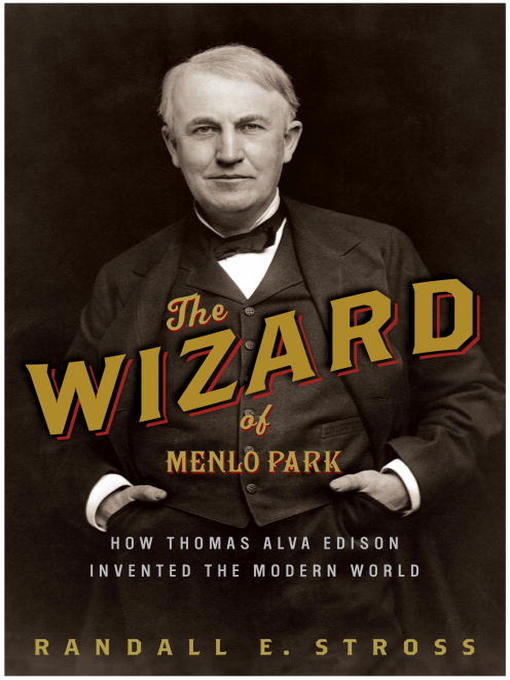
The Wizard of Menlo Park
How Thomas Alva Edison Invented the Modern World
- اطلاعات
- نقد و بررسی
- دیدگاه کاربران
نقد و بررسی

March 12, 2007
In this entertaining biography, Stross (eBoys: The First Inside Account of Venture Capitalists at Work) approaches the life of Edison from an atypical angle: where scores of other biographers have focused on the genius's technical career, Stross presents Edison as the first self-conscious celebrity, a man deeply aware of the media's power and who wasn't afraid to use "the press's hunger for more sensational discoveries for his own ends." Though branding is now second-nature for famous people (and their handlers), Stross asserts that Edison launched the first successful branding campaign-an achievement arguably further ahead of its time than much of his technical output-by embracing the title "Wizard of Menlo Park," which was coined by a reporter during Edison's brief stay in that New Jersey town. With preternatural skill in image-management, Edison became indistinguishable from his moniker, encapsulating perfectly the air of mystery and wisdom he cultivated throughout his life, for both himself and his "invention factory," which "seemed capable of mastering anything." Stross's clear-eyed biography will show readers why, even at the end of the 20th century, Edison remains, outside the U.S., the best-known American ever.

March 15, 2007
Seventy-five years after his death, Thomas Edison remains a fascinating personality in U.S. history. He was a figure of many contradictions. A prolific inventor, he would abandon projects when his interest flagged but stick stubbornly to others beyond a reasonable amount of time; he was also a businessman with rather poor business judgment, a distinctive individual who held some obnoxious views, a deaf man who could be cagy and insightful about handling people and the press, and a family man who was for most of his life a solitary figure until befriending many celebrities later in life. Stross (business history, San Jose State Univ.;Steve Jobs and the Next Big Thing ) comes to this complex person with a singular purpose. He wants to credit Edison "with another, no less important, discovery related to celebrity that he made early in his own public life, accidentally; the application of celebrity to business." In successfully accomplishing this objective, he earns this title a place on the shelves of all large collections and history of science collections. Readers desiring a more thoroughgoing picture of Edison are better served by Neil Baldwin'sEdison: Inventing the Century .Michael D. Cramer, Schwarz BioSciences, RTP, NC
Copyright 2007 Library Journal, LLC Used with permission.

March 1, 2007
Biographies abound of inventor Thomas Edison, so Stross distinctively positions his book under the theme of Edison's celebrity. The publicity apparatus of Edison's day, quaint compared with today's multimedia conduits to the public and its tabloid appetites, still served to elevate Edison into the realm of the famous. Stross, who frequently writes about contemporary techno-idols (" Steve "Jobs and the Next Big Thing, 1993), recounts the onset of Edison's celebrity with several articles published in 1877-78 about his phonograph. Soon trainloads of curiosity seekers, from hustlers to those already famous, such as actress Sarah Bernhardt, descended on Edison's laboratory to gawk at the inventor. With this loss of privacy, Edison learned the difficulty of controlling one's fame. As Stross' narrative explains, Edison attempted to exploit his name to attract attention to his business projects and succumbed to other temptations, such as pontificating on subjects outside his expertise--executions by electrocution, for example. Stross' Edison, capitalizing on his prominence but coping with the importunities of the multitude, becomes a human-scaled character grasping the honeyed thorns of fame.(Reprinted with permission of Booklist, copyright 2007, American Library Association.)




دیدگاه کاربران